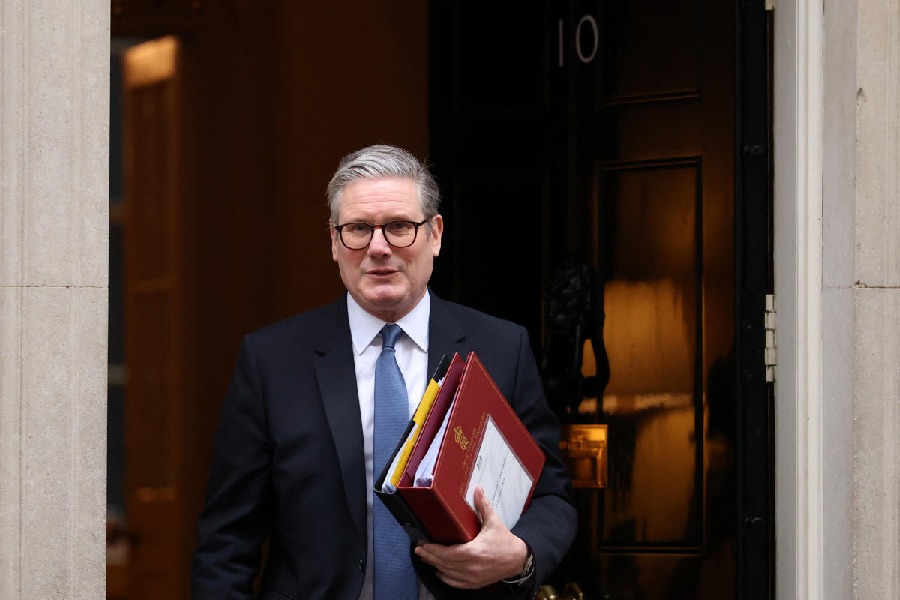The confrontation between pro-Khalistan protesters and counter-demonstrators outside the Indian high commission in London, coupled with the disruption of the screenings of the film, Emergency, and India’s subsequent diplomatic protest, highlight the complex challenges facing Keir Starmer’s Labour government in managing a vital bilateral relationship.
These events, following similar tensions in 2023, might once have spiralled into a diplomatic crisis. However, the Labour Party’s swift engagement with Indian authorities and the balanced handling of public order while protecting the right to peaceful protest reflect a more nuanced understanding of the complexities.
The Starmer administration’s broader approach to India reveals a strategic calculation that diverges significantly from previous positions. The early diplomatic engagement by the foreign secretary, David Lammy, and Starmer’s productive G20 meeting with Narendra Modi indicate a recognition that Britain’s post-Brexit recalibration requires a fundamental reset of bilateral ties.
This strategic pivot becomes more remarkable when viewed against Labour’s recent history. Under Jeremy Corbyn’s leadership, the party witnessed a dramatic erosion of support among British Indians — from 61% in 2010 to 30% by 2019. Corbyn’s controversial stance on Kashmir and perceived anti-India bias had created deep fissures that threatened to permanently damage Labour’s relationship with Britain’s largest ethnic minority.
Starmer’s government has methodically addressed this legacy through concrete institutional changes. The establishment of the ‘Labour Indians’ grouping and the unprecedented election of Indian-origin MPs like Sojan Joseph, Kanishka Narayan, and Jeevun Sandher further reinforce this commitment.
While the Conservatives maintained a BJP-centric approach to Indian engagement, Labour has crafted a more sophisticated strategy. The party’s invitation to the Congress, led by the former external affairs minister, Salman Khurshid, to its annual conference signals a broader engagement with India’s political spectrum. This approach, while maintaining strong relations with India’s ruling party, demonstrates a recognition of India’s democratic plurality.
Labour’s cultural outreach has been as comprehensive. Starmer’s visits to the Swaminarayan temple during the elections reflect a systematic engagement with diverse community institutions. The ‘Hindu Manifesto’, addressing issues from temple security to faith education, demonstrates this detailed approach to community concerns. The government’s handling of sensitive issues also illustrates this evolution. The Jagtar Singh Johal case, which may have prompted confrontational rhetoric earlier, has instead seen measured diplomacy that balances consular responsibilities with broader strategic interests.
But Labour’s approach faces several tests. The pursuit of a comprehensive Free Trade Agreement requires balancing economic opportunities with domestic concerns. The government must also navigate India’s growing strategic importance in the Indo-Pacific while maintaining Britain’s broader international relationships. It must also demonstrate the ability to prevent diaspora tensions from undermining diplomatic progress. However, Labour’s three-pillared approach — rebuilding diaspora trust, strengthening bilateral relations, and repositioning Britain in the Indo-Pacific — provides a framework for managing these challenges.
As Britain seeks to define its post-Brexit role and India continues its rise as a global power, the success of this partnership carries broader implications. Labour’s systematic approach to repair past damage while building new frameworks for engagement suggests a maturity that augurs well for this crucial relationship.
Ashraf Nehal is a postgraduate scholar of South Asian Geopolitics, School of Oriental and African Studies, University of London










